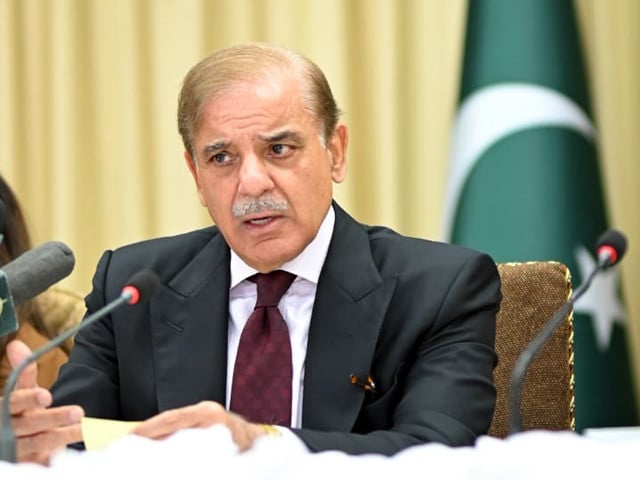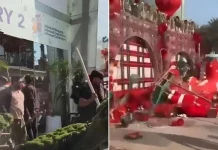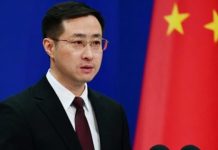—— Asserts plotters wanted ‘anarchy, war’ in the country
—— Notes some military personnel were also involved in events of May 9
—— Claims the violence aimed to topple military leadership
News Desk
ISLAMABAD: Prime Minister Shehbaz Sharif said May 9 incidents — the day when chaos gripped Pakistan — aimed to topple military leadership, while Pakistan Tehreek-e-Insaf (PTI) Chairman Imran Khan was its mastermind.
The PTI chief’s arrest in a graft case triggered violent protests, during which his party’s supporters ransacked public and military properties. The premier said men, women, a cabal, some military men and their families were involved in the events of May 9, dubbed “Black Day” by the military.
“Those involved in the May 9 incidents wanted to overthrow the military leadership,” the prime minister said during an interview with the local private TV channel.
PM Shehbaz mentioned that the planners wanted “anarchy” and “war” in the country.
Following the violent protests, the government and the military vowed a strong response, arresting and detaining several PTI workers and leaders for their alleged involvement.
In response to the attacks, Pakistan Army sacked three senior officers, including a lieutenant general.
Major General Ahmad Sharif Chaudhry, the army’s spokesperson, said two departmental inquiries were conducted, headed by major generals, and punishments were given according to their recommendations.
Strict departmental action had also been taken against another 15 army officers, including three major generals and seven brigadiers, Chaudhry said, as part of internal accountability in the military.
Chaudhry added that several relatives, including women, of senior army officers were also facing trials for allegedly being facilitators of the violence.
The PTI contests that its members were not involved in the attacks, but the government and military reject the claims and say they have “irrefutable evidence” of their involvement.
The army also decided to try those who attacked military installations — including the General Headquarters in Rawalpindi and Lahore Corps Commander House — in military courts.
The Supreme Court, however, expects that civilians will not be tried in military courts until it has decided on the petitions challenging the trials. -Agencies




